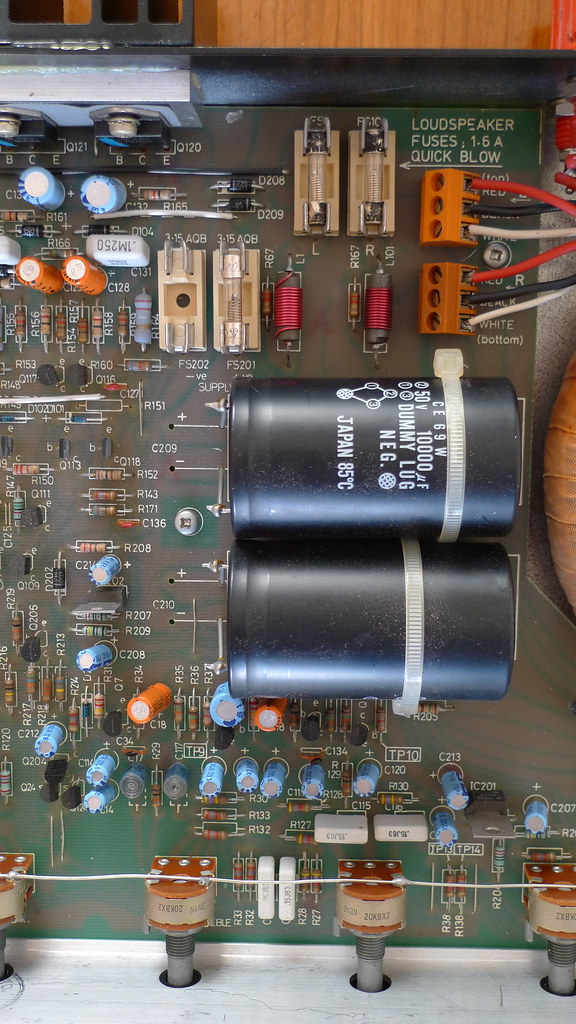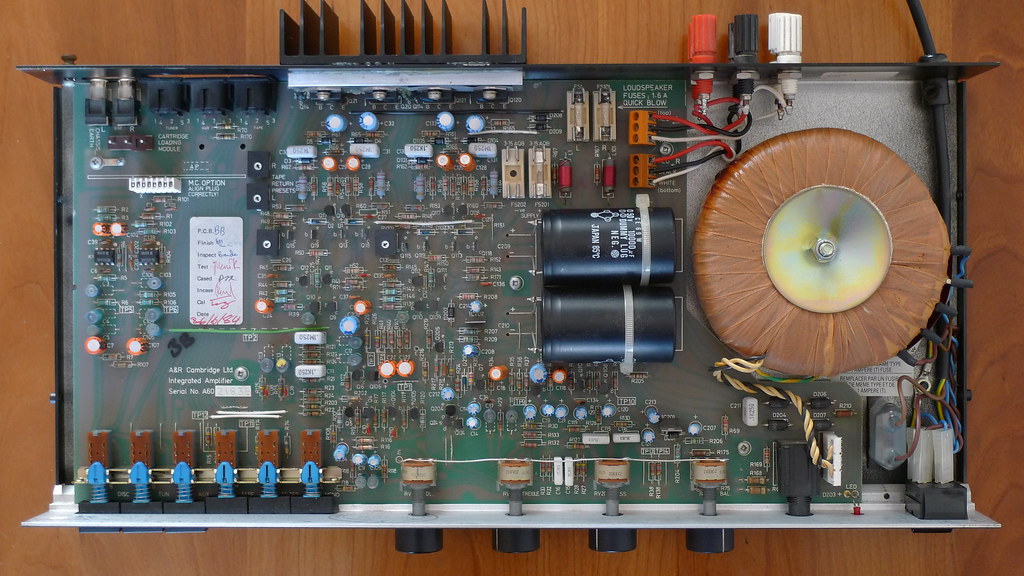I concur. Fuses do fail due to age. Every time the amplifier is used, there's some thermal stress on the fuse. Over a long period, this can set in metal fatigue, and the fuse eventually fails for no good reason.
However, I would expect this more on the mains fuse rather than the + or - supply fuses.
I agree with the suggestion to replace the fuse with the correct value (make sure it's a fast-blow fuse as the fuseholder is labelled 3.15A QB) Note that the other fuses are all incorrect, the 'speaker fuses are slow-blow but should be quick-blow, and the +ve supply fuse is a slow-blow too but should be QB.
If the fuse holds good, then the amp would seem to be OK, but if the fuse immediately blows again, then there's a real fault. Rectifier or output transistors as already suggested is favourite.
I'm a bit concerned as to why the fuses have been replaced by Slow-Blow fuses, possibly out of ignorance of the difference, but if there is a fault, it could have been caused by the wrong fuse failing to protect the amp. Anyway, fuses are cheap enough so its worth trying.
S.



